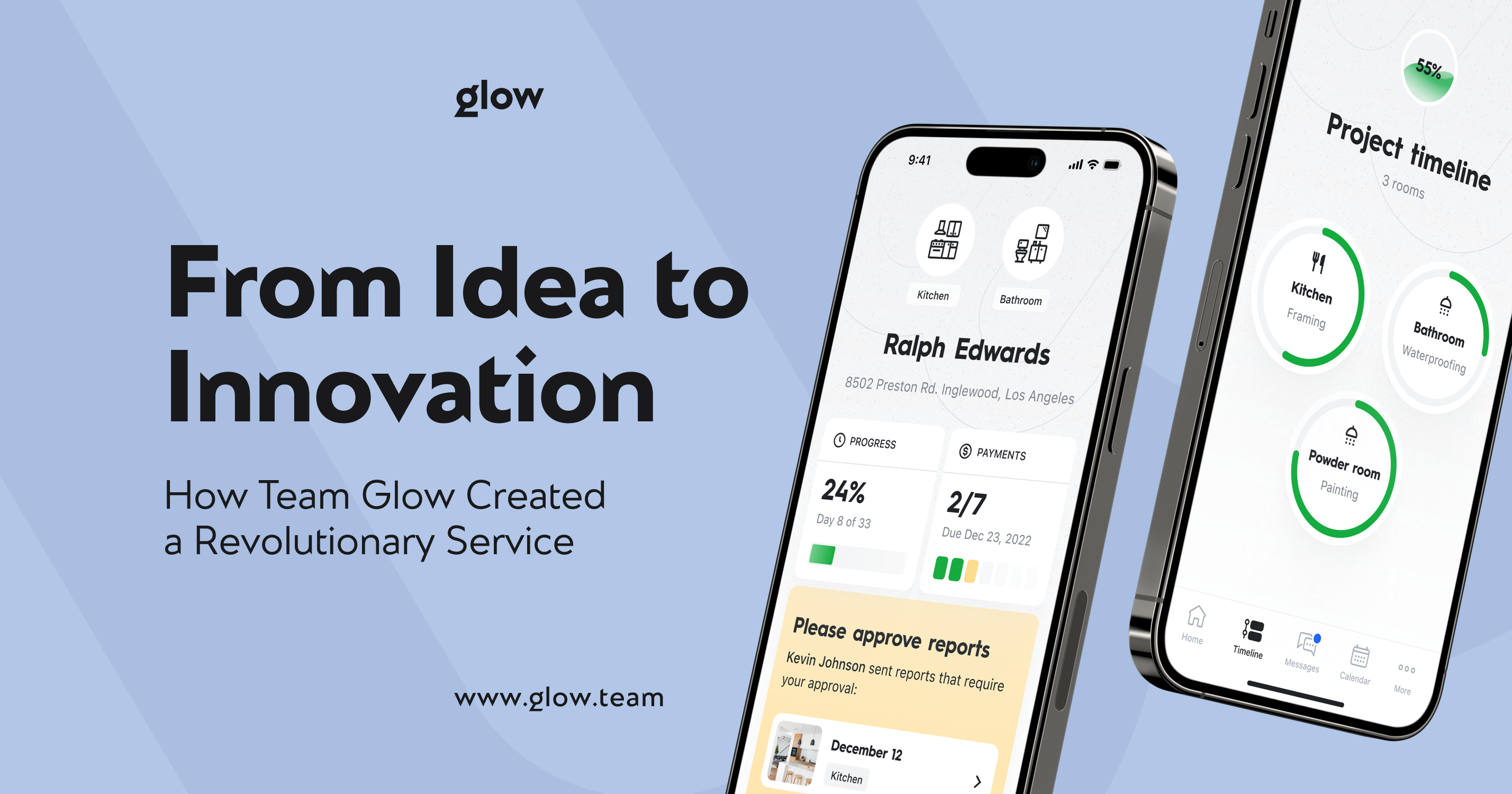In 2025, your construction website is often the first impression potential clients have of your business. Yet many contractors still rely on outdated, clunky sites that fail to generate leads or showcase their expertise. A well-designed construction website design isn't just about looking professional — it's about converting visitors into paying customers while establishing trust in a competitive market.
If you're looking to improve your online presence, here are the key elements that make construction websites actually work:
- Clear Service Offerings. Dedicated pages for each service type (roofing, concrete, renovations) make it easy for clients to find exactly what they need.
- Strong Call-to-Action Buttons. Prominently placed CTAs above the fold and throughout pages drive quote requests and phone calls.
- Trust Signals. Licenses, certifications, Google reviews, and team photos build credibility instantly.
- Mobile Optimization. Responsive design ensures your site works perfectly on phones and tablets, where most leads originate.
- Project Portfolio with Details. Before-and-after galleries with context, timelines, and budgets showcase your work compellingly.
- Local SEO Strategy. Location-specific keywords and optimized profiles help potential clients find you in search results.
These elements work together to transform a simple website into a lead-generation machine for your contracting business.
Why Construction Companies Need Better Websites in 2025

The construction industry is evolving faster than ever. Homeowners and commercial clients now expect the same polished digital experience from contractors as they do from any other business. Here's why upgrading your online presence matters:
Trust and credibility have become essential. Potential clients research companies online before making calls, checking reviews, portfolios, and credentials. A professional construction web development strategy demonstrates that your business is established, legitimate, and worth their investment.
Competition is fiercer than ever. While your local competitors might have websites, they rarely optimize them for conversions or mobile devices. A modern site gives you a significant advantage in capturing attention and converting interest into actual jobs.
Mobile traffic dominates. Over 70% of construction service inquiries now come from mobile devices — from homeowners searching "emergency plumbing" or "roof repair near me" while sitting on their couch. If your site isn't mobile-friendly, you're losing potential clients to competitors who are.
Lead generation drives growth. Every page should guide visitors toward taking action: requesting a quote, calling, or booking a consultation. A strategic construction website does this seamlessly, turning casual browsers into qualified leads ready to discuss projects.
Key Features of a High-Converting Construction Website

Clear Service Offerings
Your homepage shouldn't try to be everything to everyone. Instead, clearly segment your services. If you offer roofing, concrete work, and renovations, each should have its own dedicated page. Use straightforward language and benefit-driven headlines like "Roof Repairs That Last 25+ Years" rather than generic titles.
Example: A roofing contractor should have a dedicated page explaining the types of roofing they specialize in, why customers should choose them, what materials they use, and what the process looks like — not just a vague "roofing services" link buried in a menu. This clarity helps clients find what they need quickly and reduces bounce rates.
Strong Call-to-Action
Your CTA should appear prominently above the fold (the first thing visitors see without scrolling) on your construction website design. Make it specific and low-friction: "Get a Free Estimate," "Call for Your No-Obligation Consultation," or "View Our Portfolio." Repeat this CTA at the bottom of the page and throughout relevant sections. Color contrast matters — make it stand out with a bold button color that contrasts sharply with your background.
Trust Signals
Construction is a high-trust industry. Showcase credentials prominently: contractor licenses, insurance certifications, industry associations, and Google reviews. Include photos of your team and real client testimonials with names and pictures. A section dedicated to "Why Choose Us" that highlights years of experience, completed projects, safety records, and guarantees builds immediate confidence in potential clients.
Mobile Optimization
This cannot be overstated. A responsive construction web development approach means a design that works seamlessly on phones and tablets is non-negotiable. Forms should be easy to fill on small screens, images should load quickly, and navigation should be intuitive. Mobile-first indexing means Google prioritizes how your site looks on phones when ranking it. Test your site on multiple devices to ensure flawless performance everywhere.
Project Portfolio or Gallery
Before-and-after photos are powerful, but context makes them irresistible. Create proper project showcases that include the scope of work, timeline, square footage, budget range, and specific challenges overcome. Video walkthroughs of completed projects add even more impact and help potential clients envision what you can do for them. The more detailed your cases, the more trust you build.
SEO and Local Targeting
A beautifully designed site means nothing if no one finds it. Local SEO is critical for contractors. Optimize your pages for location-specific keywords like "roofing company Toronto" or "concrete contractor Denver" on your construction website. Claim your Google Business Profile, build local citations, and create location-specific landing pages. Blog content around common contractor questions also drives organic traffic and positions you as an expert in your field.
5 Great Construction Website Examples (And Why They Work)

- 1. Milestone General Contracting. Their site excels at clear service segmentation with dedicated pages for each offering. The mobile experience is flawless, CTAs are unmissable, and their project gallery includes detailed case studies — not just pretty photos. Navigation is intuitive even for first-time visitors.
- 2. Precision Roofing Solutions. They use excellent trust signals: certified contractor badges, customer testimonials with photos and project details, and a robust before-and-after gallery. The site loads quickly, and the "Request Estimate" button appears every few sections, making it impossible to miss.
- 3. Foundation Experts Co. Focuses heavily on educational content — blogs, FAQs, and resource pages that answer common questions on their construction website design. It builds authority and drives organic search traffic while providing genuine value to visitors. They've positioned themselves as thought leaders in their niche.
- 4. HomeWorks Renovation. Features compelling video walkthroughs of recent projects. The pricing transparency ("Most kitchens $15K–$30K") reduces friction and attracts serious inquiries. Mobile performance is excellent, and forms are simple to complete.
- 5. Built Right Construction. Integrates Google reviews directly into their homepage, offers live chat support, and has a simple but effective contact form. Their "Meet the Team" section humanizes the business and builds trust with potential clients who want to know who they'll be working with.
How to Get a Professional Construction Website (Without Overpaying)

You have options: DIY builders like Wix, hiring a freelancer, working with a local web designer, or partnering with an agency specializing in construction website design.
While DIY builders are affordable, they rarely deliver the conversion optimization or SEO foundation contractors need. Freelancers can be cost-effective but may lack specialization in the construction industry. A specialized agency like Glow Team understands the unique needs of contractors — they know which trust signals matter most, how to structure pages for lead generation, and how to optimize for local search. They've built dozens of construction sites and understand what actually converts visitors into paying clients.
The investment typically ranges from $3K to $8K for a professional, conversion-optimized site. Yes, this is more than a DIY option, but the quality of leads you'll generate will repay the investment within months. Many contractors see their investment back within the first 2–3 months of launching an optimized construction web development strategy.
FAQ

How much does a construction website cost?
A professional construction website typically costs between $3,000 and $8,000, depending on the number of pages, design complexity, SEO optimization, and features like booking systems or customer portals. Budget more if you need advanced functionality like project management integration or client portal systems.
Should I include pricing on my website?
Yes. Transparency builds trust. Even if you can't list exact prices, provide ranges. For example: "Deck installations start at $2,500." If pricing varies significantly, a "Request a Quote" approach works, but make sure the quote process is simple and fast — ideally, no more than a quick form or phone call.
What pages should a contractor's website have?
At minimum: Home, Services (with breakdowns for each service type), Portfolio/Gallery, About Us, Testimonials, Contact, and a Blog or Resources section. License/certification pages are also valuable for trust. Consider adding an FAQ page addressing common customer questions about your specific trade, installation timelines, and warranties offered.
Need Help Building Your Construction Website?
If you're ready to replace your outdated site with a modern, conversion-focused construction web development platform that actually generates leads, it's time to talk to specialists. Glow Team combines strategic UX/UI design, technical excellence, and deep industry knowledge to create websites that work as hard as you do.
We've helped dozens of contractors increase their lead volume by 50% or more with properly optimized sites. From initial consultation to launch and ongoing optimization, we handle everything — you focus on running your business.
Don't let another month pass with a website that underperforms. Contact us today for a free consultation, and let's discuss how a professional site can transform your construction business in 2025.








